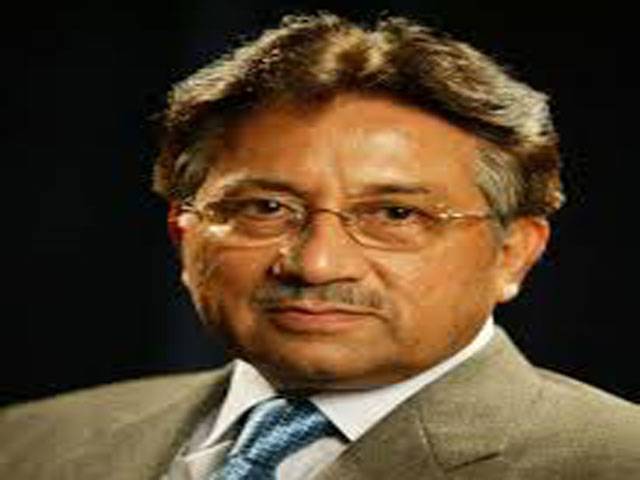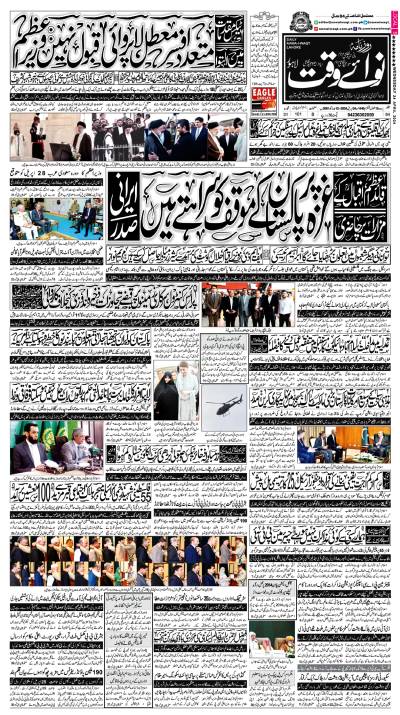ISLAMABAD - Former President Pervez Musharraf in order to save himself now wants names of other generals, particularly former Chief of Army Staff Ashfaq Pervaiz Kayani, in high treason case.
Farogh Naseem, defence counsel, arguing the case on Wednesday submitted before a three-judge Special Court that if Musharraf as army chief had imposed emergency on 3rd November 2007 then why General (Retd) Kayani stepping in his shoes as COAS after 27th November 2007 did not lift the emergency.
He contended that instead of selective trial of Musharraf all the services chiefs and corps commanders should also be tried under article 6, as Musharraf had consulted them and others before imposing the emergency. He said if those officers say that they had followed the superior's order then they had not complied the Supreme Court's judgment in Mehran Bank scandal, which says the officers should only follow the lawful orders. "Silence means the acceptance, as none of them have protested," he said and added. "After the emergency no one had resigned but remained onboard."
The court observed that prima facie his arguments sound well, but asked the defence counsel that he has to establish the connection what he was contending.
Naseem argued that the prosecution should also provide necessary documents including minutes of the 44th session of the National Assembly dated 7.11.2007, list of the cabinet members, including advisors and attorney general for Pakistan, governors, chief ministers, chief secretaries, home secretaries, inspector generals of police, members of the cabinet and provincial assemblies of all the four provinces, and the copy of the notification that replaced Musharraf with Kayani as COAS and the letter written by then PM Shaukat Aziz to the then president before emergency.
He said the prosecution should also supply the lists of all those persons visited Musharraf in the President House and the Army House Rawalpindi from 1st July 2007 to 3rd November 2007. "I am not demanding lists from the 1st June 2006 because I want to protect the honour of judiciary and, therefore, not disclosing the names of judges of the apex court and high courts who met with Musharraf in President or Army House during 1-7-2007 to 3-11-2007," he said. "We need these documents as these are extremely relevant to the case," he added.
Justice Faisal Arab, who was presiding over the bench, said now all the documents have come on the record. However, Naseem argued that still there are some documents, which are not available to them.
He said article 6 also mentions abetment, collaboration and aiding, but the government has made it the case of selective trial. He said the complainant intentionally hid the summary sent to Musharraf. He further argued that law secretary, principal secretary of the PM and the prime minister had approved the summary for oath under PCO for judges and the president was advised to appoint Hameed Dogar as chief justice of Pakistan. "My client (Musharraf) had no choice but to act on the advice in view of the constitution provisions." He said there were other summaries too.
The defence counsel requested the court to deem the contemporaneous things also as evidence. He said the charges framed against Musharraf are invalid, as he had shown this to the court through minutes and the summaries.
He said that the court in view of his argument should either amend the charges or send it back to the complainant for changing them or quash the proceeding in term of the selective trial. Naseem argued that the vagueness in the present form the article 6 is not implementable.
He said that the 14-member bench of Supreme Court in Sindh High Court Bar Association petition did not direct the government to lodge complaint, but it was the three-judge bench of the apex court that had asked to federation to proceed against Musharraf under article 6.
Earlier, Naseem while arguing said the court in its 7th March 2014 order had stated that summoning of other persons involved in the 3rd November emergency depended upon the evidence that would come on record during the proceedings.
He said that he had no access to the documents that they had mentioned in the application; therefore, the complainant should be directed to supply them to the defence counsels. He said being the law officer of the court he also wanted to stop the martial law in the country but then no one should be spared.
The case was adjourned till June 4.
Thursday, April 25, 2024
Musharraf wants Kayani, other generals part of trial

Caption: Musharraf wants Kayani, other generals part of trial
Musk vs Australia
April 25, 2024
Reforming Rehab
April 25, 2024
Tax It Right
April 25, 2024
Cartoon
April 25, 2024
Embracing EVs
April 25, 2024
Academic Uprising
April 24, 2024
Cooperation Momentum
April 24, 2024
Facing Reality
April 24, 2024
Absent Academia
April 23, 2024
Murree’s Redemption
April 23, 2024
Population paradox
April 24, 2024
Unveiling differences
April 24, 2024
Space print revolution
April 23, 2024
Digital grievance
April 23, 2024
Wonders of VR
April 22, 2024
ePaper - Nawaiwaqt
Advertisement
Nawaiwaqt Group | Copyright © 2024





